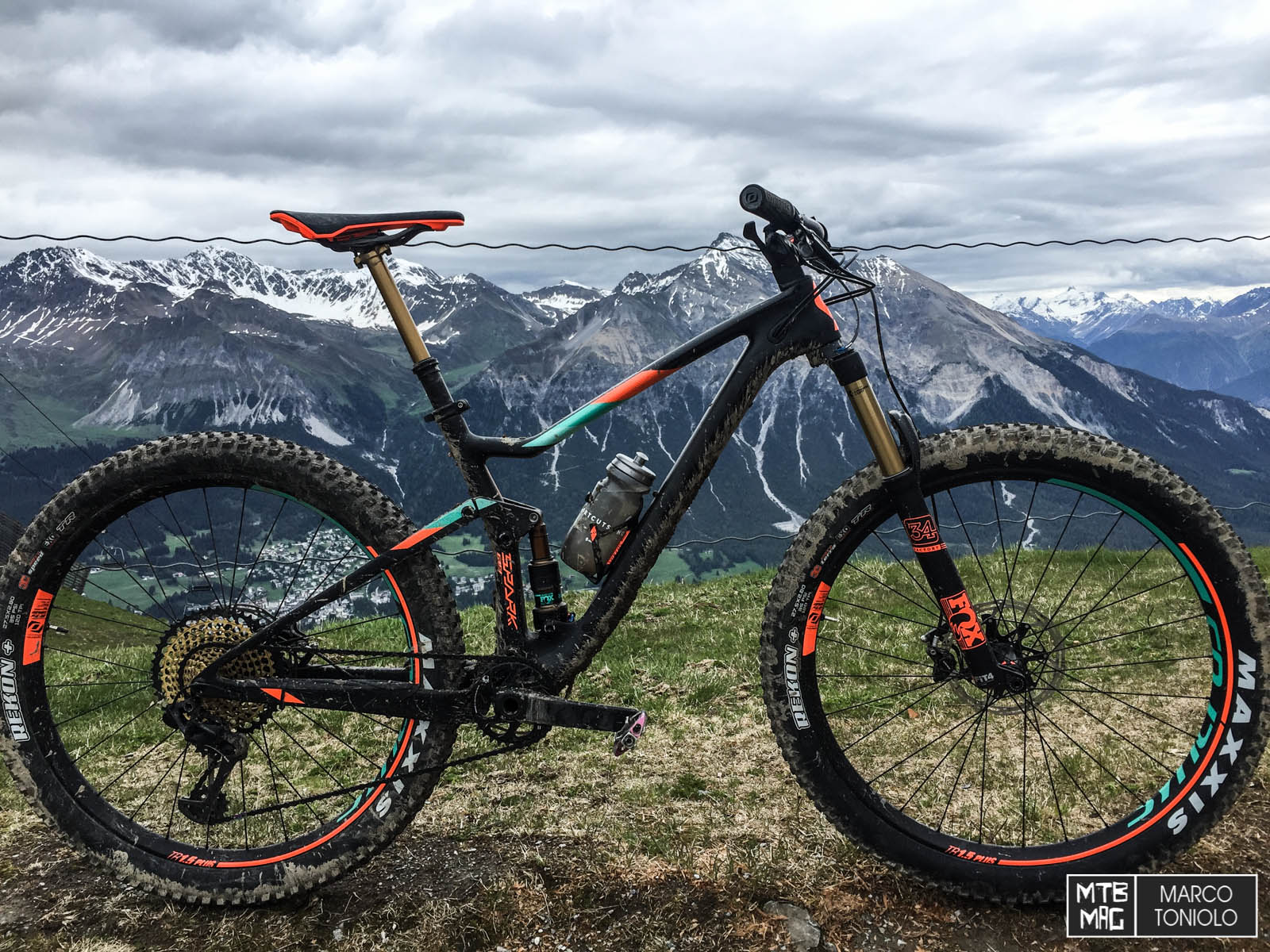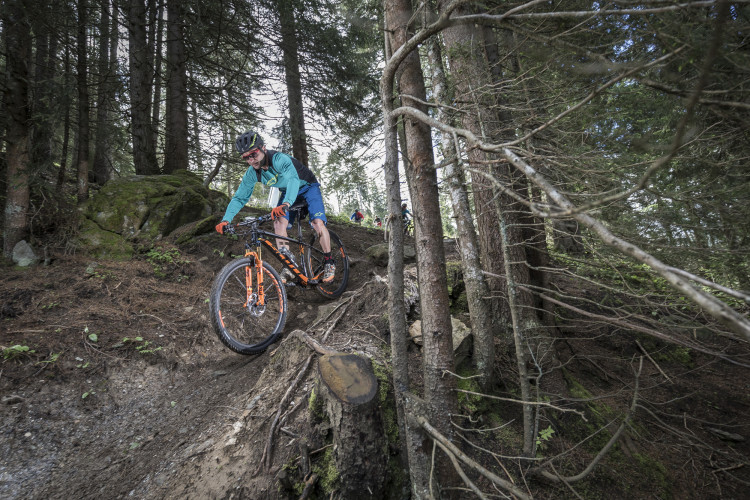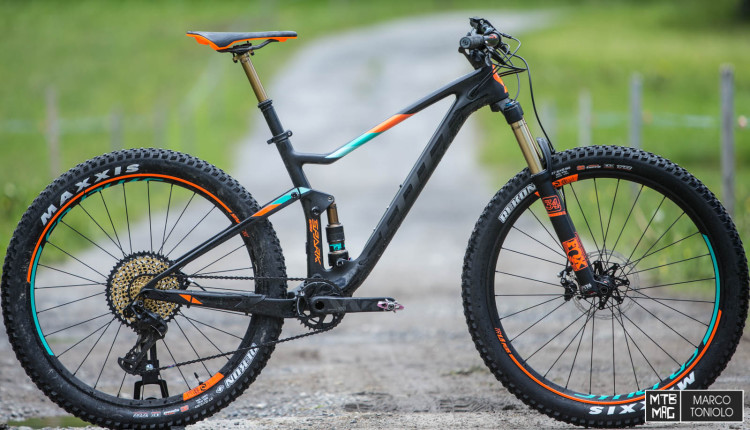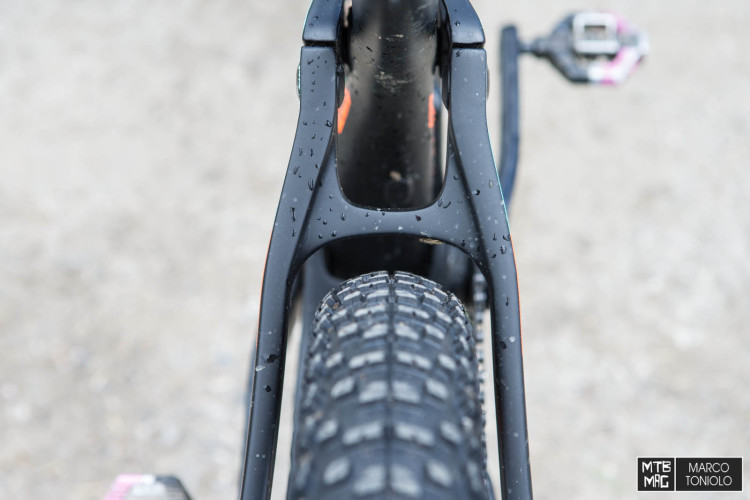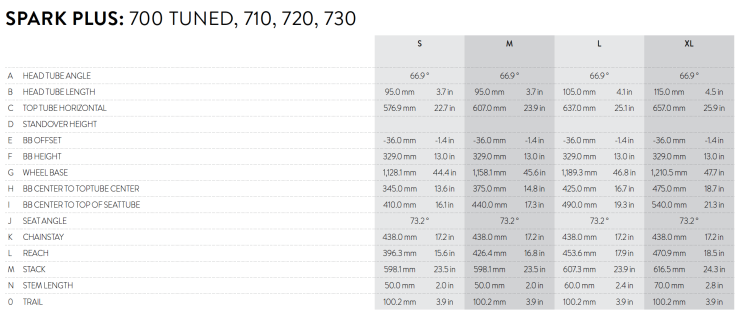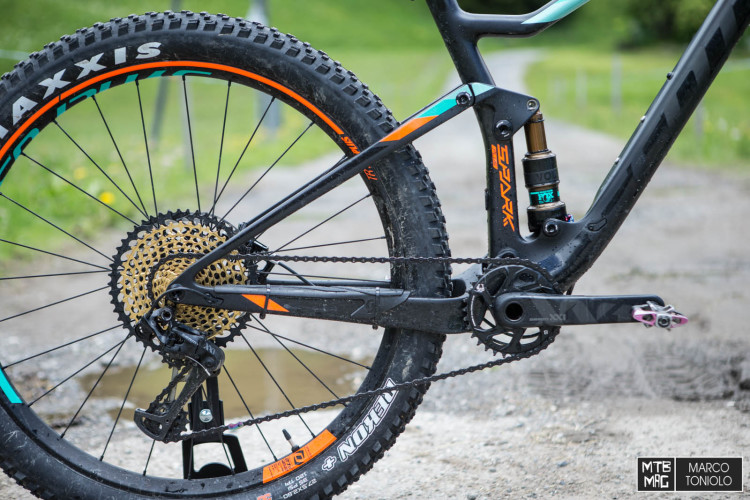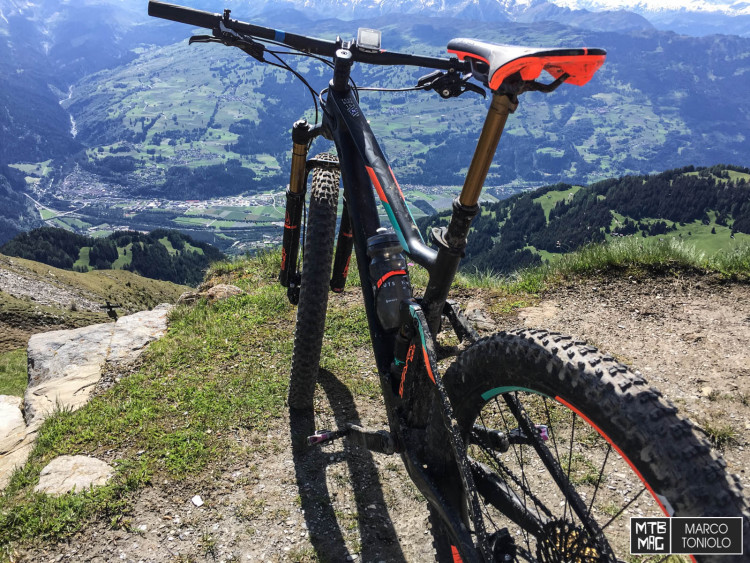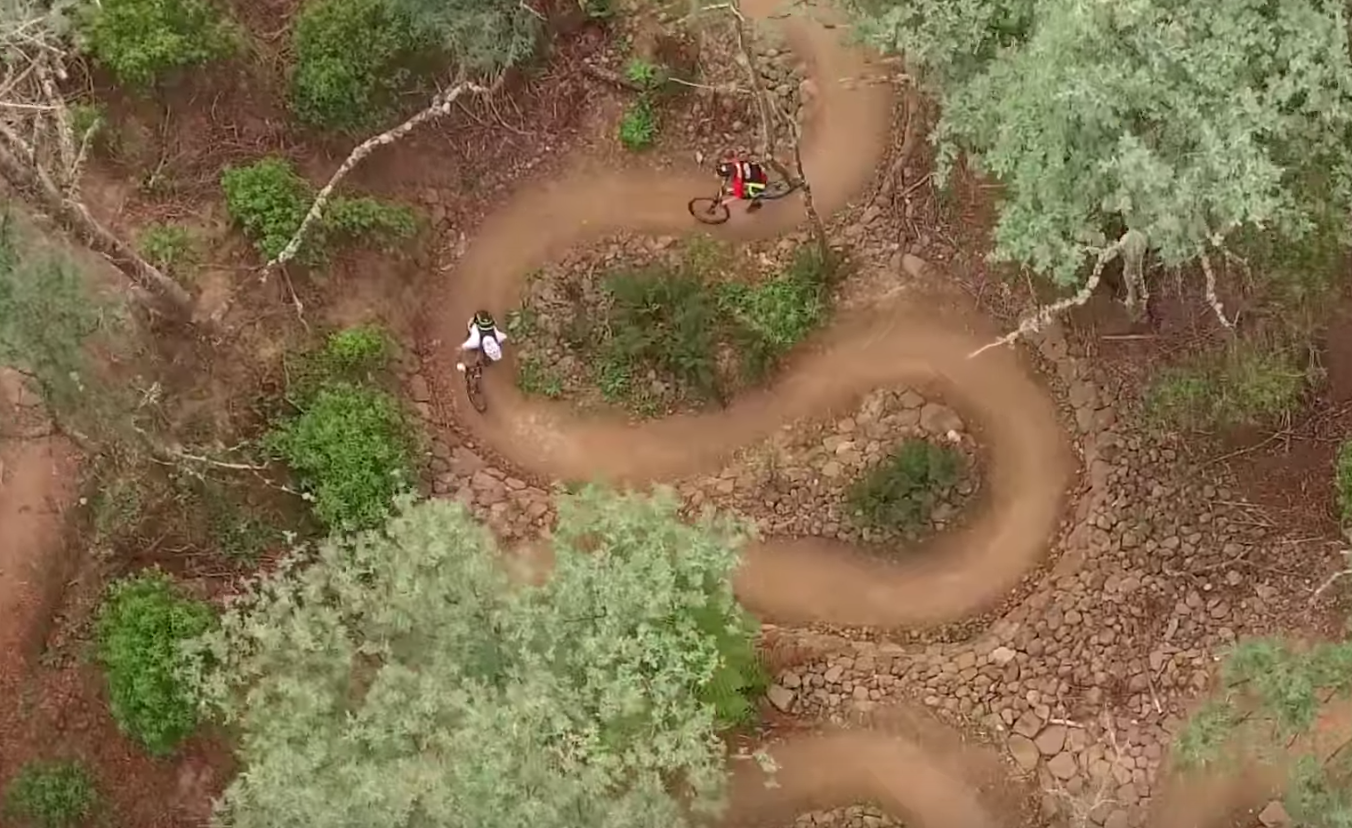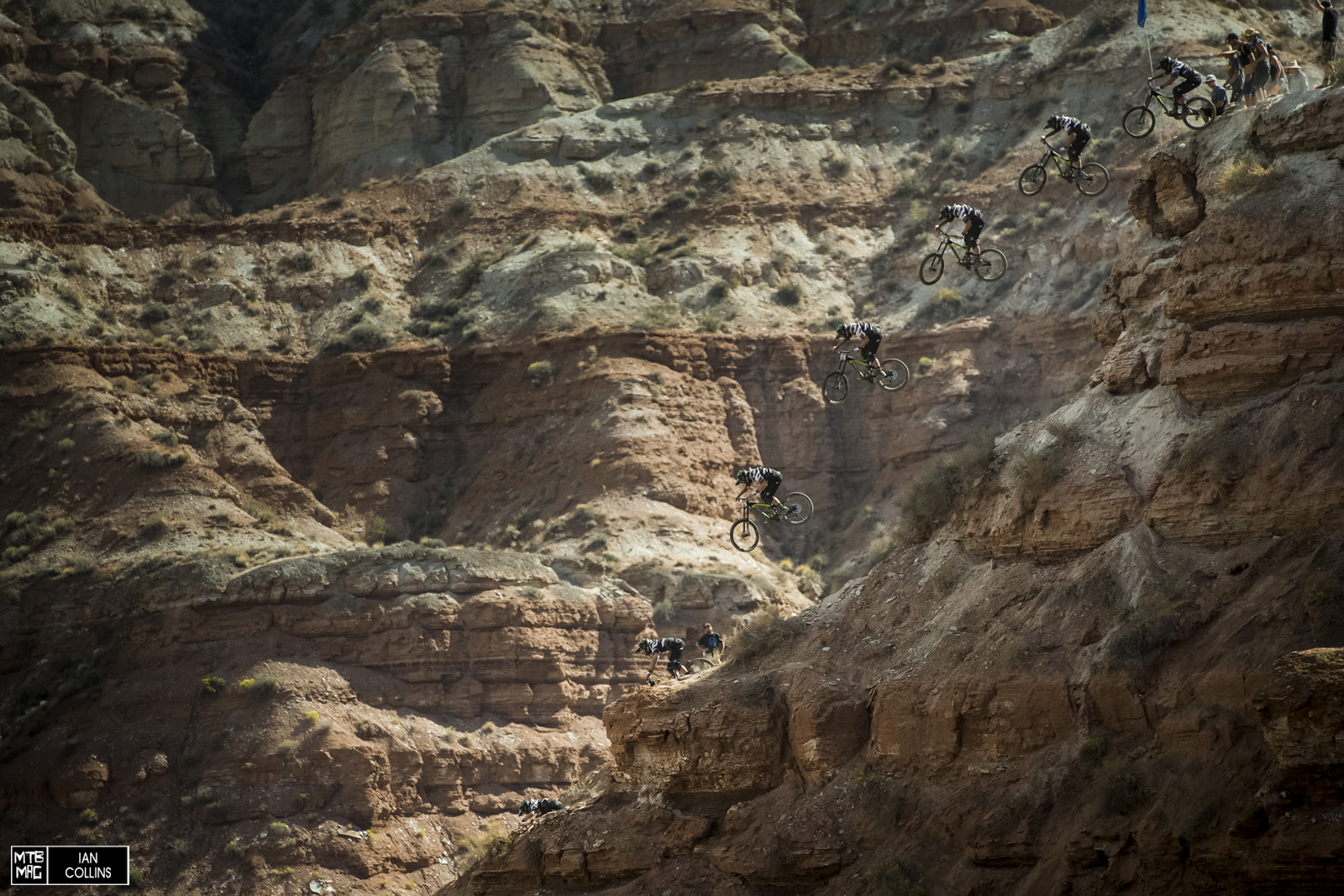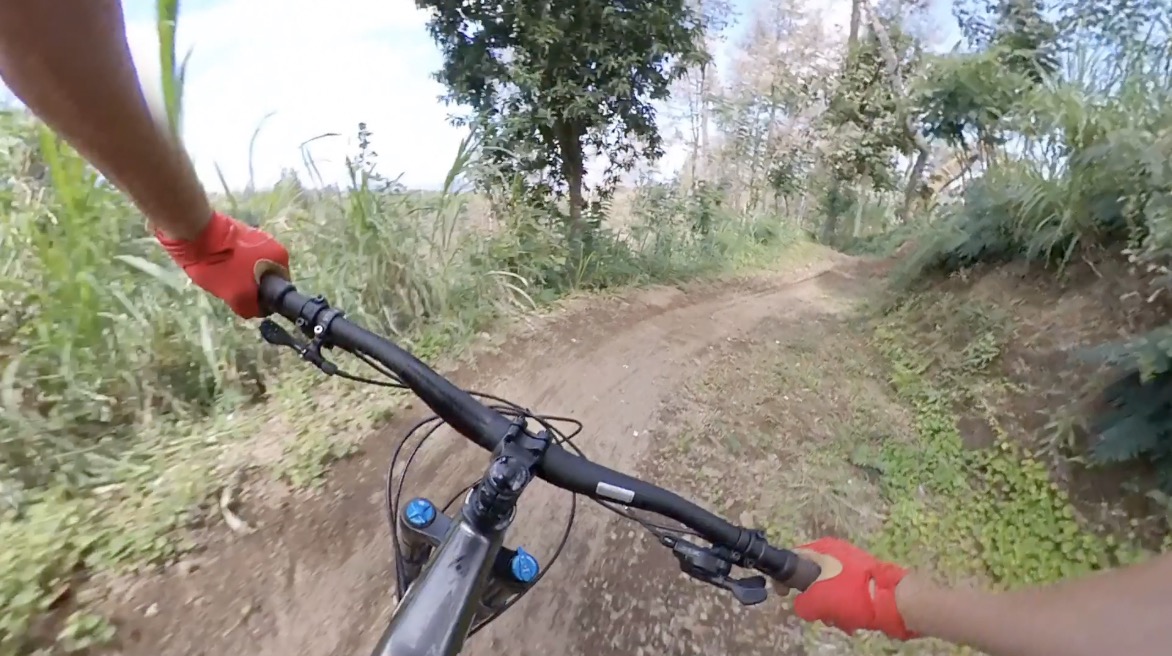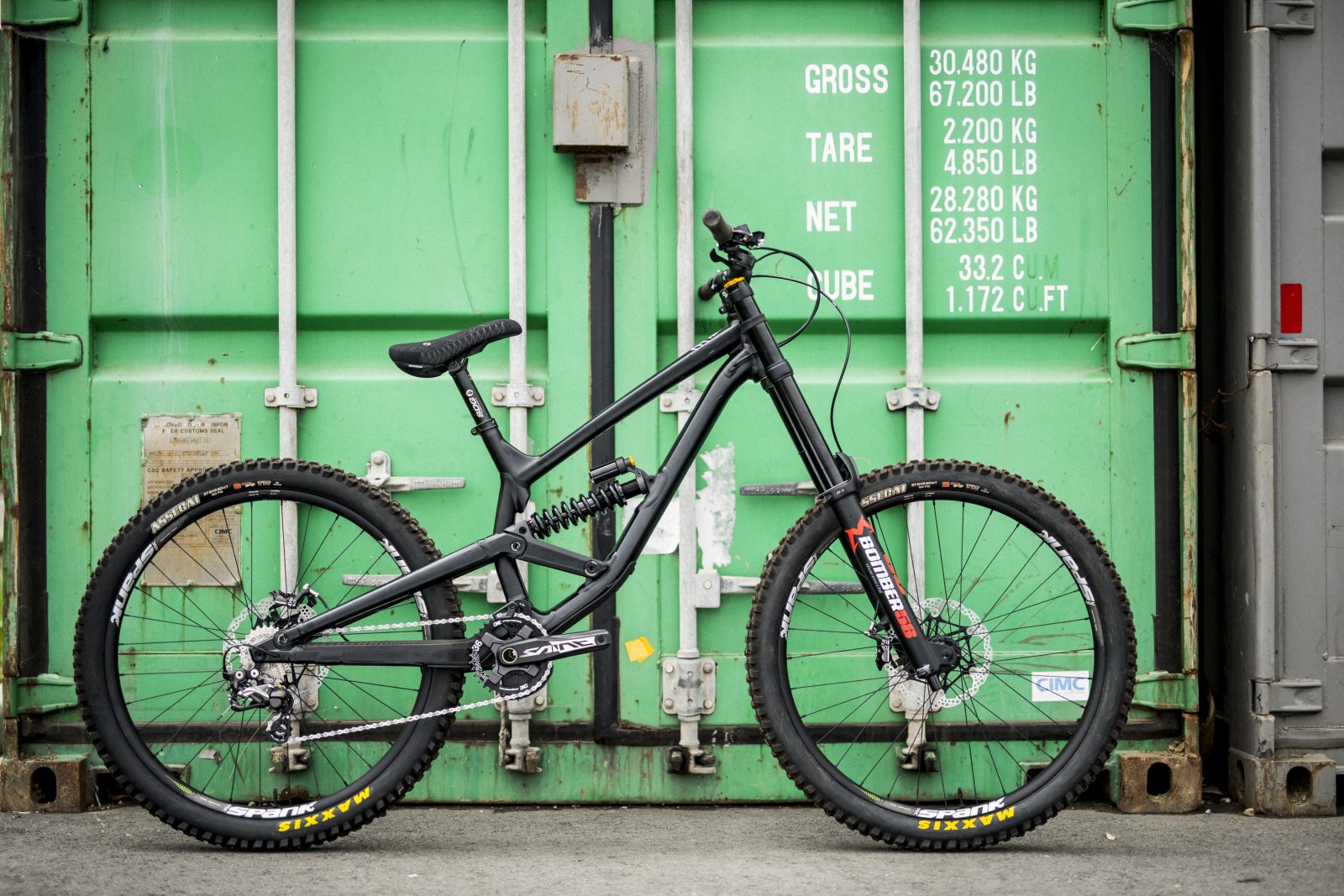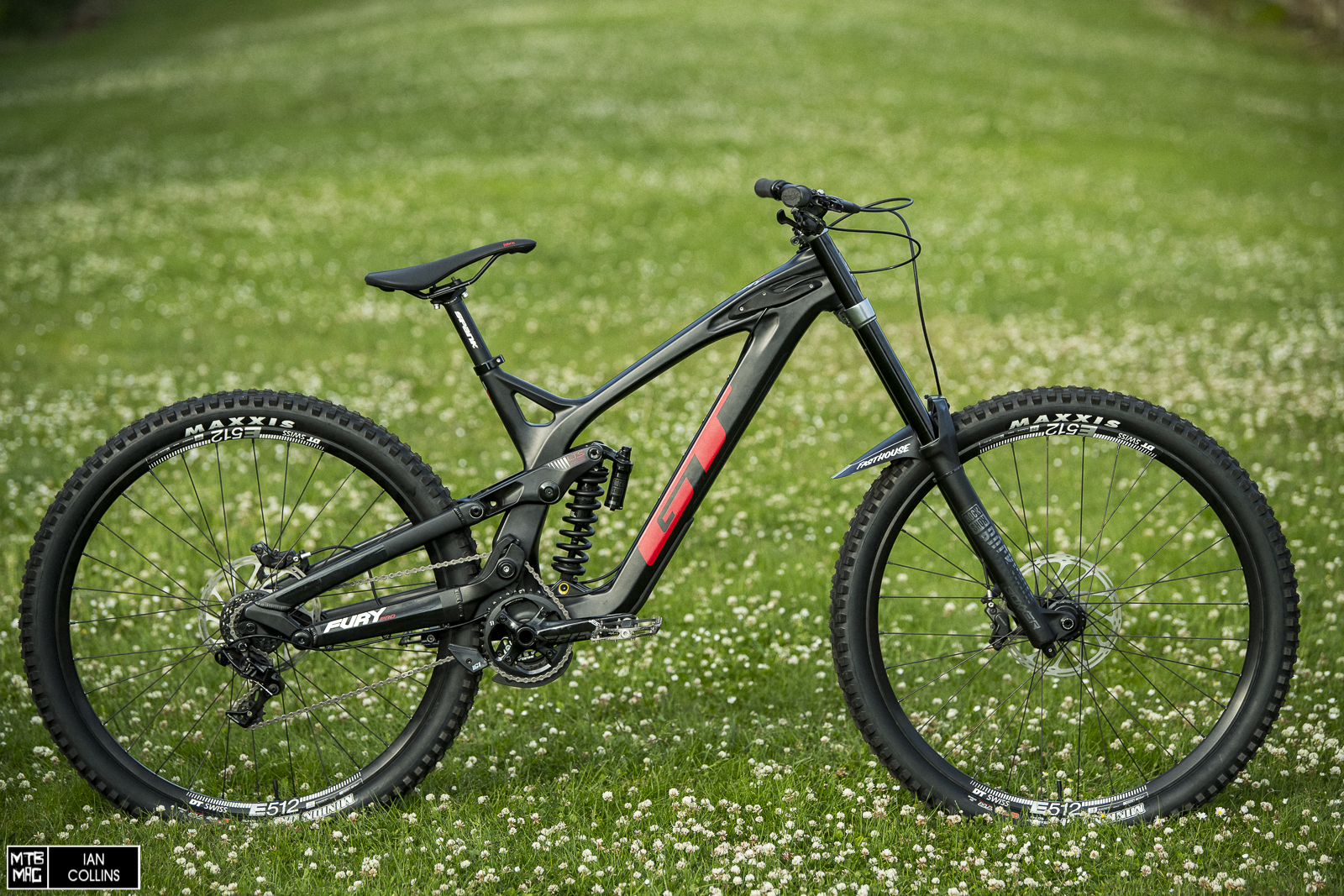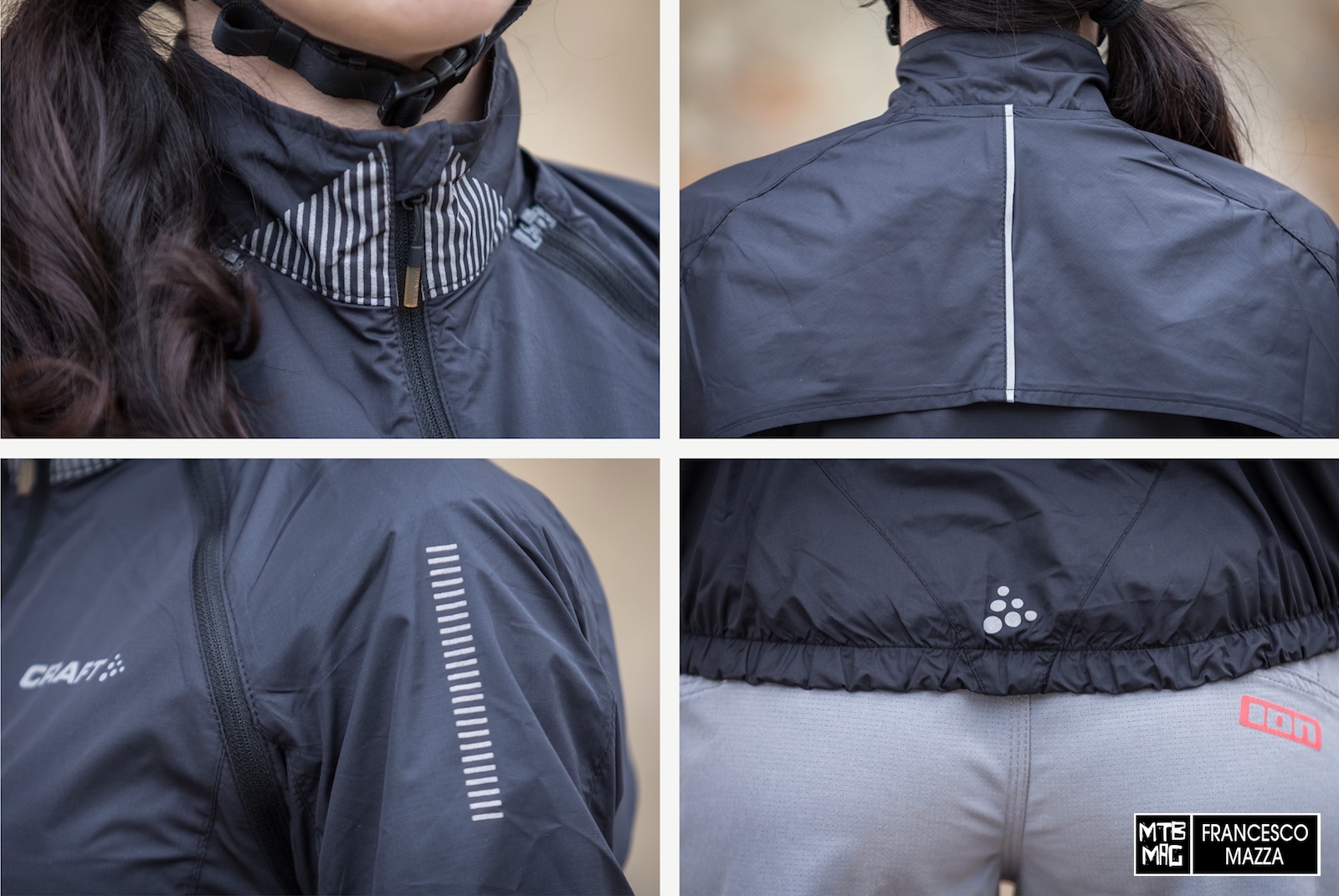[ad3]
You’ll probably be asking yourself why we chose to write a “first ride” review about a Plus bike, instead of the two new super light race machines Scott presented this week. First of all it has to be said that we rode also the Scale RC 900 SL, as you can see from this photo.
We rode two half laps of Lenzerheide world cup track. Just half of it because the rest is closed all year long, except few days during the race, as it is located in a protected alpine park. The trail was wet and pretty challenging, with lots of of off camber roots that we had to negotiate on the not-really-grippy Schwalbe Rocket Ron (with tubes). All in all, it’s hard to discuss much about the bike, apart from the fact that is a great climber and quite comfortable, for a hardtail. A specific review will follow in the next months.
Below is the bike we could ride properly on the Lenzerheide trails: the Scott Spark Plus 700 Tuned.
Let’s start from the weight, one more time: 11.8 kg with the specs you see in the photo above (without pedals). Full carbon frame, Fox Float 34 with 130mm travel, Fox Nude Shock with 120mm travel, SRAM Eagle 1×12 drivetrain, Fox Transfer dropper seatpost (read our review here) and Maxxis Rekon 2.8 Exo tires, tubeless. The remote control trigger takes care of the suspensions setting with its typical 3 positions: Lockout, Traction & Descend.
Speaking of the tires, they are key on a Plus bike, because they decide between fun and frustration. It’s not our first time on a Plus bike, and we have never been big fans of this format, partly for their “lazy” behaviour and partly for the fragile tires. It’s not like the case where the Genius 700 Plus didn’t do very well during our comparative test.
Scott worked very hard on the Spark Plus: first of all, the tires are strong, and they weigh around 900 grams. Forgotten are the times when we had to rode Schwalbe’s Nobby Nic 750 grams Plus tires during the last year’s Scott launch, with so many flats, on the Genius. By the way, those tires have also been changed and they are now more robust as well.
Secondly, the geometry is really interesting:
Slack head angle, short stem, “long” reach and relatively short rear triangle, on a bike with only 120mm of rear travel. That makes the Spark a playful and agile trail bike. Let’s be clear: the Plus tire influence on the overall bike handling cannot be ignored, especially when entering fast corners and in the paved climbs (we kept a tire pressure of around 1.2 bars), but we are light years away from the lazy feeling we noticed on the Genius. The Spark is easy to turn around tight corners, and it is quite easy to get used to the bigger weight coming from the wheels. This video, following Thomas Frischknecht, speaks for itself.
On the other hand the bike has a very good traction and grip, meaning that it gives the rider more confidence, especially on fast and loose tracks, where the Spark literally floats on the rocks. We found quite hard to ride on wet and slippery trails, like on wet roots: the Maxxis Rekon looses its grip all of a sudden, and it’s difficult to know when the tire is going to give off. If you expect the Plus tire to glue on wet trails only because its width, you will be disappointed.
Talking about suspensions, Scott made a huge improvement from its old kinematic. Now the rear is plush at the beginning and progressive towards the end, exactly what we expect from a modern bike. The influence of the Plus tires cannot be ignored though: there is no rebound control there, they are quite abrupt and faster than the suspension. One solution would be going down with the tire pressure, but the loose feeling on fast corners is not what we’re after.
On the uphills, the pedaling position is well centered on the bike and the traction is huge, especially on loose gravel roads, where more than ever the limit is the rider’s leg power. The same traction translates in more struggle when riding paved roads, as one can expect.
You can love or hate the Twin Lock, but once you get used to it, you’ll ask yourself why only Scott has it on their bikes: it’s very easy and fast to adapt the suspension’s behaviour depending on the terrain, without having to fumble with levers and knobs that are not always easy to reach. The bar gets messy indeed on the 2x spec’ed bikes, with 7 (seven!) cables departing from the handlebar, dropper post included.
Who is this bike for?
The Spark Plus is perfect for the riders looking for more self confidence on the trails, independently if they are experienced or beginners. Even good riders will have fun on this bike, because it’s agile, playful and super steady on loose terrain, and they will not be going to stop every ten minutes for a flat. This is a welcome news from the “Plus world”, especially for riders who love to shred in the downhills. Still, it’s important to remember that the big volume tires interfere a bit with the suspension, because their rebound cannot be tuned.
It’s a fun bike and, if you bring it to its limit or the Plus tires feel too shabby to you in the turns, remember that it fits also normal 29er wheels.
Scott Spark Plus 700 Tuned Specs
Price : TBD
[ad12]

